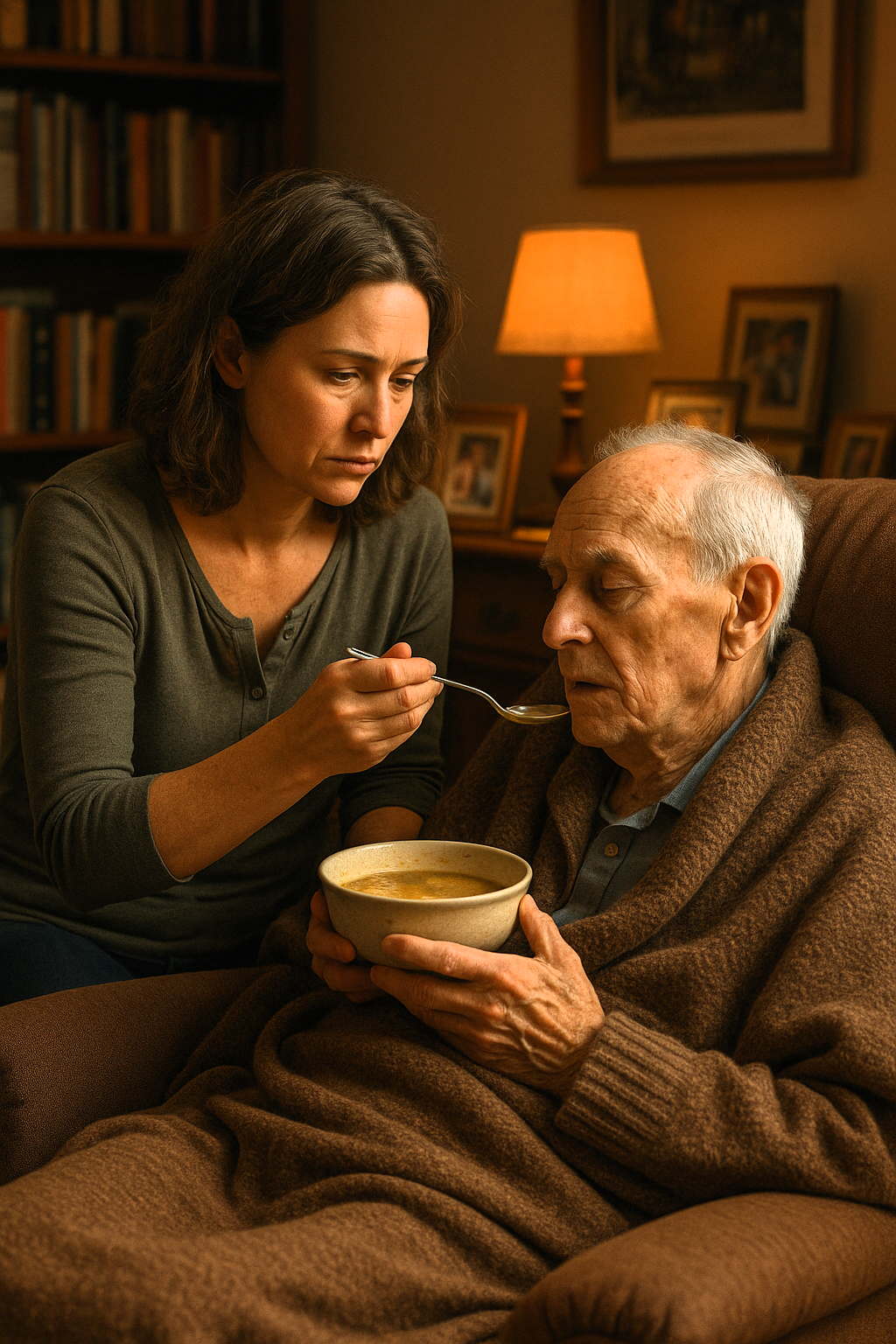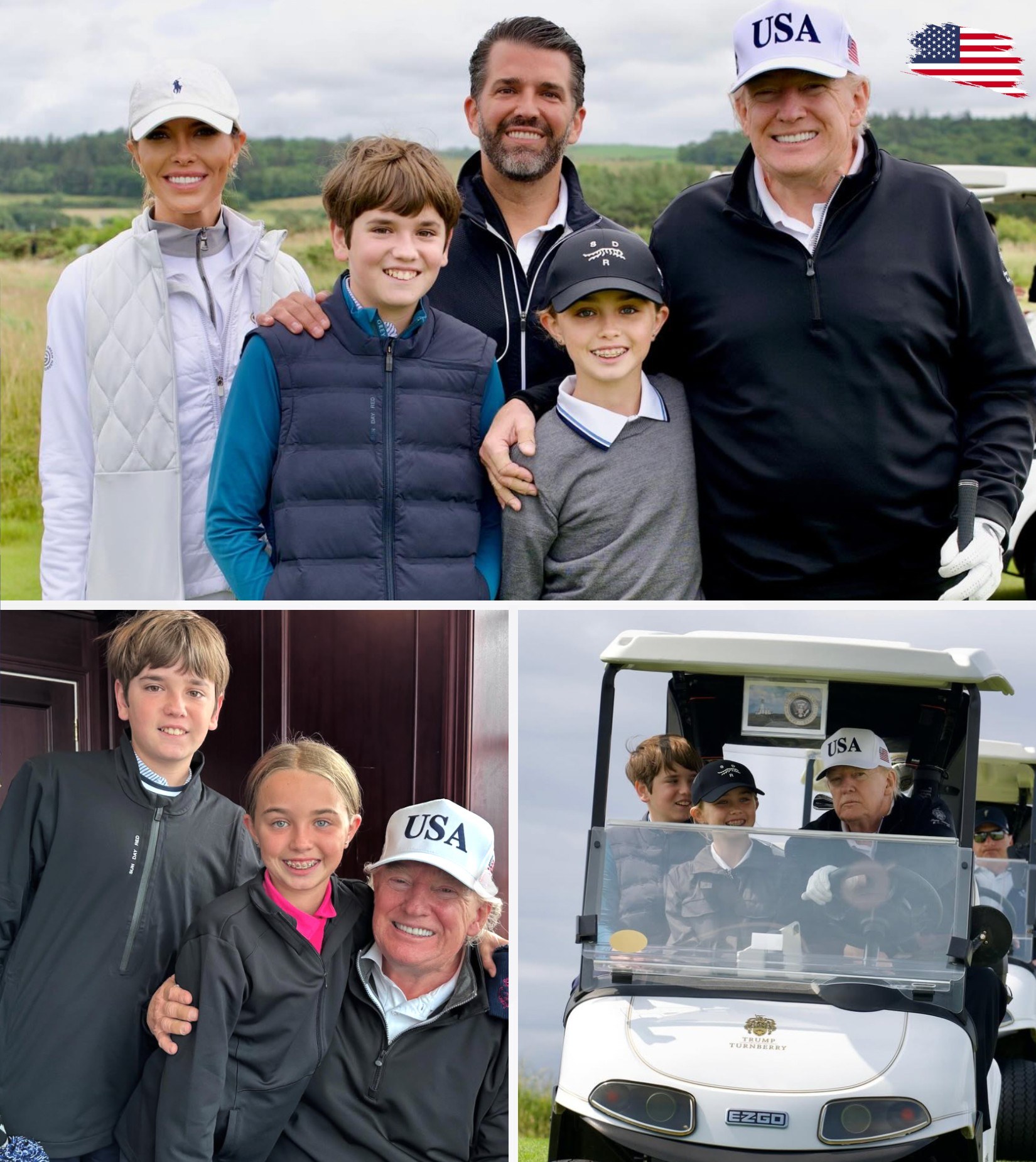I paused my entire life to care for my dad. What began as occasional visits slowly turned into round-the-clock care. I stopped seeing friends, stopped dating, and eventually stopped living for myself entirely. I believed it would only last a few months—but those months stretched into years.
Dad had always been the strong, reliable one. Watching him grow weaker chipped away at me daily. I prepared his meals, assisted with bathing, drove him to countless doctor appointments, and stayed by his bedside during long, restless nights when pain kept him awake. I never resented him—it wasn’t his fault—but it was a lonely journey.
My brother lived far away, across the country. He called occasionally—maybe once a month—but that was the extent of his involvement. He always had some excuse: work, kids, or “bad reception.” I tried not to take it personally, but when you’re the one holding everything together, it’s hard not to feel deserted.
When Dad passed away earlier this year, I was shattered. I had centered my entire life around him, and suddenly, he was gone. Still, I found some comfort knowing I had done everything possible. I believed, at least, he knew that.
A few weeks later, we gathered for the reading of the will. My brother flew in, dressed sharply with an expression of mild impatience. I sat quietly, holding my breath as the lawyer read through the document.
But as the list went on, my name never came up—not once. Everything—Dad’s savings, the house, even his beloved old car—was left to my brother.
I sat there stunned, my ears ringing. My brother gave me a brief, awkward smile before leaving to “catch his flight.” The lawyer nodded politely and began packing up. That was it. No explanation, no letter, no sign of recognition.
When I got home, I collapsed onto the couch and cried harder than I ever had. It wasn’t about the money or the house. It was the feeling that my dad—the man I had devoted everything to—had somehow overlooked me. That maybe he hadn’t seen all the sacrifices I made.
For days, I wandered in a haze. I told myself it didn’t matter—that love isn’t measured by possessions—but the pain lingered.
A week later, I began sorting through his belongings, packing boxes to donate. Most of his clothes still smelled faintly of him—soap, coffee, and fresh air. Then I reached his bookshelf. Dad loved books. They were his most treasured possessions, each filled with underlined passages and margin notes.
While dusting the shelves, I pulled out his favorite book—a worn novel he read every winter. As I opened it, something slipped out and fell to the floor.
It was an envelope.
My breath caught as I saw the handwriting—familiar yet shaky. On the front, it read: “For my child who stayed.”
I froze.
My hands trembled as I carefully opened it. Inside was a letter and a small key.
The letter began:
“My dear child,
If you’re reading this, it means I’m gone, and I’m sorry for the pain I caused. It may look like I left you nothing, but please don’t believe that. Your brother… he’s never been good with responsibility. I gave him what he could measure. I left you what can’t be measured.”
Tears blurred my vision as I continued reading.
“You gave up years of your life for me. You stayed by my side when no one else would, filling my final days with laughter and peace. I saw it all, even if I couldn’t always say it. You were my strength when I had none left. The key opens the safe in the garage. What’s inside is yours—not because you earned it, but because you stayed.”
I wiped my eyes and headed straight to the garage. Behind an old workbench was a small, dusty safe I’d almost forgotten about. My hands shook as I turned the key.
Inside were several envelopes and a worn leather-bound journal. The envelopes contained savings bonds and certificates—more money than I had expected. But the journal was what broke me.
It was his diary. The first entry was from years ago, the day he fell ill. Page after page detailed our days together—how I made his favorite soup when he couldn’t eat, how I read to him when his eyes tired, how I smiled even when I felt exhausted.
The final entry said:
“I hope someday my child will know how much they meant to me. I couldn’t have made it without them. If love could be measured, they’d have all of mine.”
I pressed the journal to my chest and sobbed. All the pain I’d carried began to ease. He had seen me. Every moment, every sacrifice—it hadn’t gone unnoticed.
That night, sitting by the window with the letter in my lap, I felt something I hadn’t in a long time—peace. My father’s last words gave me back what I thought was lost: his love, his recognition, and the reassurance that those years hadn’t been wasted.
I whispered, “Thank you, Dad,” and for the first time since he passed, I smiled.



